In response to the execution of three protesters -- Saleh Mir-Hashemi, Majid Kazemi and Saeed Yaqoubi -- on May 19, outraged Iranians flooded the streets of several cities.
The protests spread to prisons as well. According to a report received by IranWire, a group of woman political prisoners staged a protest in the courtyard of Tehran's Evin Prison on May 20. Meanwhile, six male political prisoners issued a statement, condemning the use of death penalty, a favorite response by the Islamic Republic to dissent.
The gathering in Evin prison's courtyard included eight prominent political prisoners — Bahareh Hedayat, Narges Mohammadi, Golrokh Iraei, Faezeh Hashemi, Nasrin Javadi, Sepideh Gholian, Shakila Monfared, Vida Rabbani — who delivered speeches.
Bahareh Hedayat: We Need a Political Platform
Human rights activist Bahareh Hedayat spoke about the role of the people and political forces and said, “People have always been the driving force behind the protests and have accepted all the threats as well.”
Silence would only "bolster the leaders and perpetrators of these heinous crimes, as well as their international allies who prioritize diplomatic relations over condemning such acts," she said.
Pointing out that just condemning the executions is not enough, this former student activist said, “If there is a shortcoming, it lies with political forces who must come up with a political platform that would lead to the victory of the protesters…If we say that we want to topple [the regime], if we say that the Islamic Republic is the enemy of the Iranian people, we must be aware that the logic and the requirements of our political actions lie in these statements. The job of political forces is not limited to only encouraging the people when they go to the streets.”
Narges Mohammadi: Executions Are Revenge for People’s Uprising
“The Iran of 2023 is not the Iran of 1980. In the 1980s, executions worked in spreading terror and in suppressing various political movements to establish and consolidate a tyrannical government, but recent executions will have the opposite effect,” said Narges Mohammadi, human rights activist and spokesperson for the Defenders of Human Rights Center. She was awarded Pen America's prestigious PEN/Barbey Freedom to Write Award for her "unflinching courage and resistance to the Iranian government’s determined campaign to silence her."
By citing “the Iran of 1980,” Mohammadi was referring to a July 2022 speech by the Supreme Leader Ali Khamenei in which he said “God in the year 2022 is the same God He was in 1981.”
While Khamenei continues to obey the “God of 1981” by executing more and more protesters, a group of children of those who were executed in the 1980s issued a statement on May 21, two days after the execution of the three protesters.
“The gears of the Islamic Republic’s execution machine have never stopped working,” they wrote. “This time [it was the turn of] Saleh Mir-Hashemi, Majid Kazemi and Saeed Yaqoubi. How many other loved ones are now waiting for the execution of their death sentences? Execution does not only take away the life of one person, it also takes away the lives of the families and friends of those who are executed."
“We, the children of those who were executed in the 1980s, know well the pain of executions, mass graves, violence, missing bodies, repression and persecution for mourning them. This repeated horror story must come to an end.”
Golrokh Iraei: Silence Is Complicity in Executions
Golrokh Iraei, a life-long campaigner for human rights, said that the only way to fight the Islamic Republic is to go to the streets: “It is no longer enough to verbally condemn the Islamic Republic and ask for an end to executions...We must go to the street, without masks, to take our rights and to save the lives of tens of people who shall be hanged by tomorrow morning’s call to prayer or in the following days. Our silence is the same as being complicit in raising the gallows.”
Faezeh Hashemi: Executions Have Become a Daily Routine
Faezeh Hashemi, an outspoken and well-known political activist and the daughter of late President Akbar Hashemi Rafsanjani, pointed out that executions have become a daily routine of the Islamic Republic government and asked, “If, as they claim, they are serious about punishing law-breakers, then what about the punishment for the culprits of the massacres in the 1980s, the Chain Murders [of dissidents in late 1980s and early 1990s], the Mahsa Movement, the shooting down of the Ukrainian Plane, honor killings and the perpetrators of acid attacks [on women]?
“In these conditions when justice has been sent to the slaughterhouse, executions must be condemned, no matter what the excuse is — insulting the Prophet, blasphemy, waging war against God, apostasy, corruption on Earth and even drug trafficking. Throughout the history, tyrants have imagined that they can stay in power longer by terrorizing [the people] and by terrorist policies, but they are ignorant of the fact that killing the innocent neither strengthens the foundations of the government nor protects religion.”
Nasrin Javadi: The Execution Machine Does Not Want to Stop
Trade union activist Nasrin Javadi reminded the gathering of the large number of young Iranians who have been killed by the security forces' targeted shootings: “The Islamic Republic’s executions and suppression machine don't want to stop. This regime has been in power for four decades. Every day since they took power we've been hearing news of our noble youth being hanged. Isn’t silence in the face of such crimes a disgrace? Our brave young people only protest because they want the life and the freedom they've been denied. In every round of protests, they arrest a large number of our enlightened young people and then hang them after months of torture and solitary confinement, sometimes hastily after those sordid shows of forced and false confessions that they broadcast on their own TV.”
Sepideh Qolian: We Shall Dance After They're Gone
“All of these loved ones who are gone embodied the idea of motherland for us who had no motherland,” labor activist Sepideh Qolian said. She said that when the people of her native Khuzestan province were being suppressed, “when we had to smell petroleum for the motherland to accept us”, they cringed when they heard the word “motherland” but now protesting young people have brought the motherland “back to us and have said that they would not stop until [this regime is] gone before the oil wells run dry.”
These young people are gone, but they have shown what Iranians must do: “We shall dance with love for our motherland when they're gone.”
Shakila Monfared: If We Don't Protest Today, Tomorrow Will Be Our Turn
“With this surge in executions, I've been thinking about a famous statement. First they went after the Communists but we stayed silent because we were not Communists. Then they went after the Socialists but we stayed silent because we were not Socialists. Then they came after us but nobody was left to protest,” said Shakila Monfared, civil rights activist and monarchist, paraphrasing Karl Marx.
Emphasizing that it makes no difference on what charges the victims have been executed, she said, “If we don't protest today, tomorrow will be our turn.”
Vida Rabbani: We Have Nothing More to Say to the Islamic Republic
“Years ago, we told the Islamic Republic everything that we had to say. Their answer to everything, to bread, to freedom, to women, to men, to life and to everything we shouted for has been suppression and bullets, a bullet for every part of the body of citizens who dared [to speak out]. Their answer to protests is blood running in the streets,” said Vida Rabbani, a journalist who has been sentenced to prison for "insulting the sacred, disturbing public order, inciting violent behavior, and conspiracy to commit a crime against national security."
“What can we talk about with an executioner?” she asked. “I'm ashamed to address this suffering and tormented people, a people who haven't spared any sacrifice to bravely end this injustice.”
visit the accountability section
In this section of Iran Wire, you can contact the officials and launch your campaign for various problems




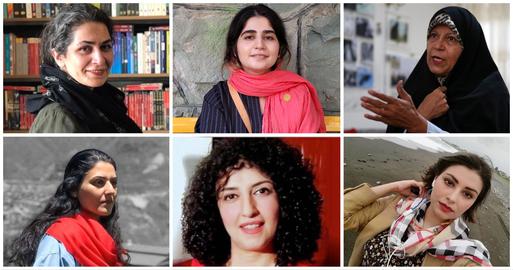










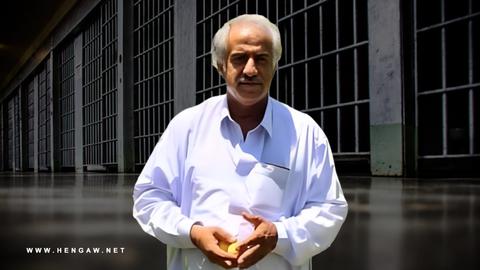

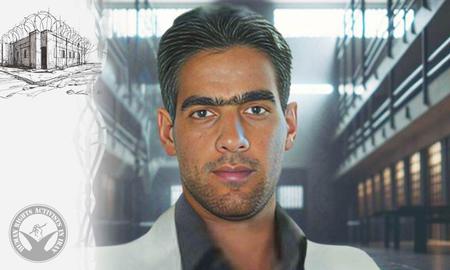


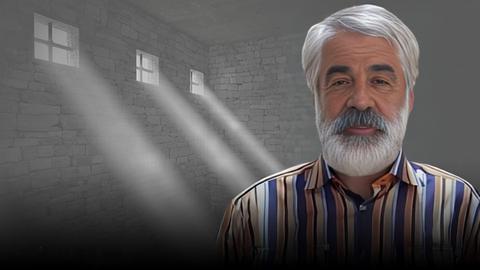

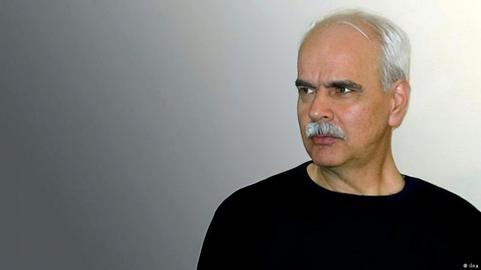

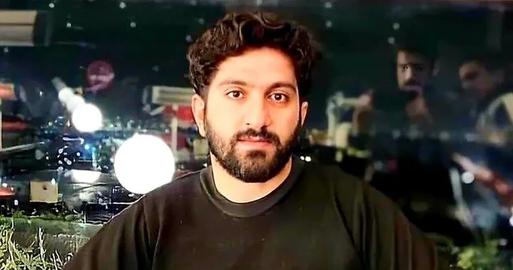




comments